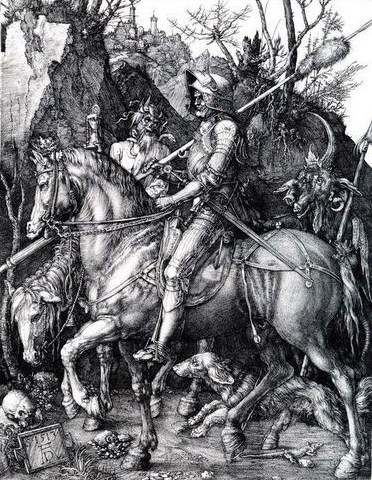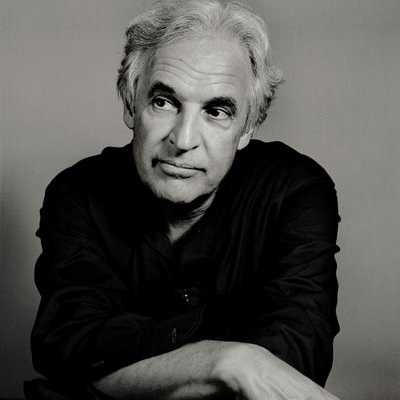Conductor makes impressive lakefront debut with French music, mostly from the dark side

The title of Wednesday night’s Grant Park Orchestra concert, “Dances and Fairy Tales,” couldn’t have been more innocently inviting. But demons also lurked in the ingenious French program featuring music by Jacques Offenbach, Cesar Franck, Maurice Ravel and Albert Roussel, which marked the Grant Park debut of conductor Gilbert Varga.
Offenbach’s Overture to Orpheus in the Underworld offered Satan at his most suavely seductive while Franck’s symphonic poem, Le Chasseur Maudit (The Accursed Huntsman), gave us a swaggering miscreant literally hell-bent as he galloped toward damnation.
Ravel’s Mother Goose Suite transported us to fairyland. But coming after two forays into Satan’s realm, it was a subtle reminder that, no matter what our age, we humans are complicated creatures. We can be as fascinated by dark shadows as we can by Ravel’s charming evocations of Sleeping Beauty and Chinese pagodas. The program’s final work, Roussel’s sinewy Suite No. 2 from his 1930 ballet Bacchus et Ariane, straddled the worlds of innocence and experience, juxtaposing the transcendent joy of romantic love with the edgier delights of good wine and hearty revels.

With his mane of grey-white hair, the European-based Varga is an assured, experienced conductor, decades into a career that is attracting increasing attention in the U.S. Born in London and the son of one of Hungary’s leading violinists, Varga has been a frequent guest conductor with the Minnesota Orchestra and the St. Louis Symphony and appeared with the Philadelphia Orchestra and orchestras in Indianapolis, Dallas, Detroit and Milwaukee as well.
In the first half of the program, Varga seemed concerned with making enough sound to fill the Grant Park Orchestra’s vast outdoor space. Maybe it was just a matter of working out amplification levels, but heard from the middle of the pavilion seats, the Overture to Orpheus in the Underworld and Le Chasseur Maudit sounded louder than they needed to be. Especially in the Orpheus Overture, Offenbach’s delicious contrasts between hearty good cheer and airy intimacy weren’t quite as beguiling as they can be.
This was merely a matter of scale, however, and Varga certainly didn’t push his tempos. Within every piece, he paid close attention to musical detail, and Grant Park’s talented musicians responded with the kind of expressive, beautifully polished playing that has become the orchestra’s standard. When they launched into the famous can-can portion of Offenbach’s Overture, the dancing girls they conjured up may have been jovial country lasses rather than sophisticated, lighter-than-air Parisiennes. But there was a lot to love in those high-spirited girls and the brightly colored musical world in which they lived.
The orchestra’s horn section, led by principal Jonathan Boen, was resplendent in Franck’s symphonic poem. In the opening bars, their resonant call to the hunt was arresting. Dogs being walked on Michigan Avenue may have pricked up their ears and strained to join the arrogant Count who invited the Lord’s wrath by riding off to the hunt on a Sunday.
Franck’s alternation of solemn hymns and frantic hunt was beautifully drawn. Throughout the evening, the orchestra’s principal players, especially the winds, provided subtly colored solos. But in Le Chasseur waves of sound from each section of the orchestra drove the action, from the tension-filled pulse of the low strings and percussion to the ominous, descending march of the brasses.
After all that wrestling with Satan, Ravel’s Mother Goose Suite came as a welcome, sweet-tempered interlude. Varga let the music unfold quietly. In the “Hop o’ My Thumb” section, Mary Stolper’s flute darted above the strings’ seamless song like a mischievous bird.
Roussel’s Bacchus et Ariane Suite No. 2 was a well-chosen finale for this Gallic program, a rebuke to the stereotype of French music as elusively Impressionistic. Roussel has his own musical voice, but this suite, written in 1930, has more than a few hints of Stravinsky’s off-kilter, propulsive rhythms and Prokofiev’s spiky harmonies. In Bacchus’ lusty dances, there is even a glimpse of the bitter humor that would become a signature of Shostakovich.
Varga and his players reveled in the music’s sweep, whether relaxing into lush, romantic song for the two lovers or racing and plunging through the final, heady celebration. At one point, the orchestra’s percussion positively boiled over into gleeful clamor. Intoxicating music, just the thing for a summer concert in the city.
The program will be repeated 7:30 p.m. Saturday. www.grantparkfestival.com; 312-742-7638
Posted in Performances


